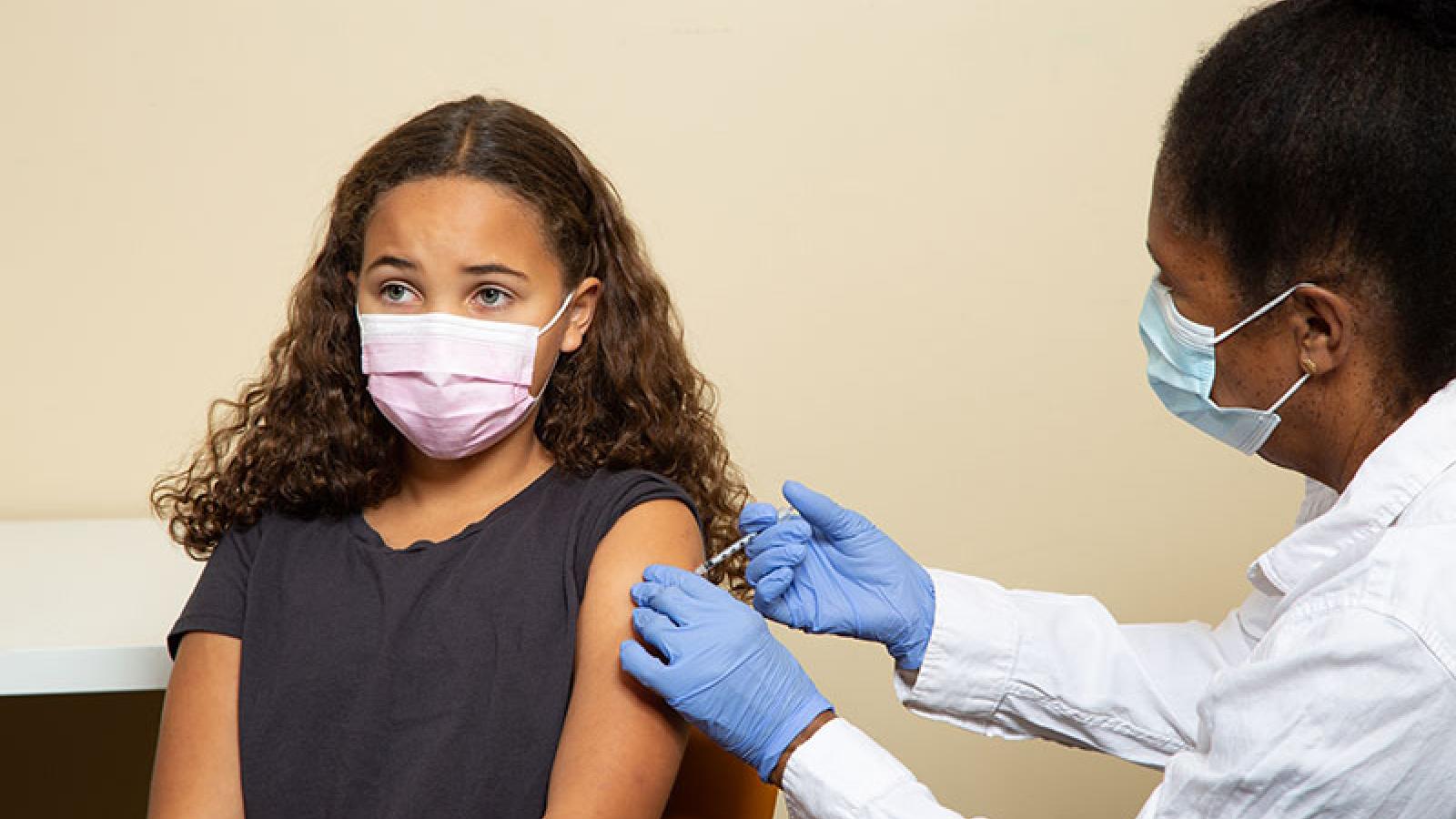COVID-19 Vaccines: Mitigating The Risk Of Long-Term Symptoms

Table of Contents
Vaccines Reduce the Severity of Initial Infection
A less severe initial infection significantly lowers the chances of developing long COVID. COVID-19 vaccines dramatically reduce the severity of COVID-19 illness. By significantly reducing the viral load and duration of symptoms, they offer substantial protection against the development of long-term complications.
- Reduced hospitalization rates: Studies consistently show a marked decrease in hospitalizations among vaccinated individuals compared to unvaccinated individuals.
- Decreased need for intensive care: Vaccines significantly reduce the severity of illness, lessening the burden on healthcare systems and minimizing the need for intensive care.
- Shorter recovery times: Vaccinated individuals tend to recover from COVID-19 more quickly, reducing the overall duration of illness and the potential for long-term symptoms to develop.
- Lower risk of severe complications like pneumonia and blood clots: Vaccines offer protection against severe complications that can significantly impact long-term health.
Vaccines Decrease the Likelihood of Long COVID
Numerous studies indicate a strong correlation between COVID-19 vaccination and a reduced risk of developing long COVID, also known as post-COVID-19 condition or post-acute sequelae of SARS-CoV-2 (PASC). Even breakthrough infections in vaccinated individuals tend to be milder and less likely to lead to persistent symptoms.
- Lower incidence of long COVID symptoms like fatigue, brain fog, and shortness of breath in vaccinated individuals: Research shows a statistically significant reduction in the prevalence of these debilitating symptoms among vaccinated populations.
- Protection against multiple long COVID manifestations: Vaccines offer broad protection against a range of long COVID symptoms, not just a few specific ones.
- Reduced duration of long COVID symptoms if they do occur: Even if vaccinated individuals experience some lingering symptoms, the duration is often shorter and less severe compared to unvaccinated individuals.
Specific Vaccine Types and Long-Term Outcomes
While all authorized COVID-19 vaccines offer significant protection against severe illness and death, research is ongoing to fully understand the nuances in long-term protection offered by different vaccine types (mRNA, viral vector, and others).
- Ongoing research comparing the long-term effectiveness of various vaccine platforms: Scientists continue to monitor and analyze data to compare the long-term efficacy of different vaccine technologies.
- The importance of staying updated on vaccine recommendations and booster shots: Public health agencies regularly update recommendations based on emerging scientific evidence. Staying informed about these updates is crucial for optimal protection.
- Consideration of individual health factors when choosing a vaccination strategy: Individuals should consult with their healthcare providers to discuss their specific health circumstances and determine the most appropriate vaccination strategy.
The Importance of Booster Shots in Long-Term Protection
Booster shots are crucial for maintaining high levels of immunity against COVID-19 and reducing the risk of long-term complications. They are vital to combatting emerging variants and offering prolonged protection against both severe illness and long COVID.
- Increased antibody levels after booster doses: Booster shots significantly increase antibody levels, providing enhanced protection against infection.
- Improved protection against severe illness and long COVID: Data suggests that booster shots offer improved protection against developing long COVID and severe illness.
- Recommendations for booster shots vary based on age, underlying conditions, and vaccine type: Individuals should follow the recommendations provided by their healthcare providers and public health authorities.
Conclusion
COVID-19 vaccines are a critical tool in mitigating the risk of long-term symptoms associated with COVID-19 infection. By reducing the severity of initial infection and the likelihood of developing long COVID, these vaccines offer a vital pathway to protecting long-term health and well-being. Staying up-to-date with vaccinations, including booster shots, remains the most effective strategy to safeguard against the debilitating consequences of this virus. Don't delay – talk to your healthcare provider today about getting your COVID-19 vaccinations and protecting yourself from the risks of long-term symptoms. Consider the importance of COVID-19 vaccination in your long-term health strategy and discuss any concerns with your doctor.

Featured Posts
-
 Q Music Leadership Change John Jc Collins And Tina Radburn Step Down
May 29, 2025
Q Music Leadership Change John Jc Collins And Tina Radburn Step Down
May 29, 2025 -
 Liverpools Premier League History When Was Their Last Top Flight Finish
May 29, 2025
Liverpools Premier League History When Was Their Last Top Flight Finish
May 29, 2025 -
 Hujan Di Bandung 26 Maret Simak Prakiraan Cuaca Jawa Barat
May 29, 2025
Hujan Di Bandung 26 Maret Simak Prakiraan Cuaca Jawa Barat
May 29, 2025 -
 Telus Five Year Plan Boosting Network Capacity And Coverage
May 29, 2025
Telus Five Year Plan Boosting Network Capacity And Coverage
May 29, 2025 -
 Wellness And Digital Wellbeing Ella Mills Ongoing Pursuit Of Balance
May 29, 2025
Wellness And Digital Wellbeing Ella Mills Ongoing Pursuit Of Balance
May 29, 2025
Latest Posts
-
 April 19th Nyt Mini Crossword All The Clues And Answers You Need
May 31, 2025
April 19th Nyt Mini Crossword All The Clues And Answers You Need
May 31, 2025 -
 Nyt Mini Crossword Saturday April 19th Complete Solutions And Clues
May 31, 2025
Nyt Mini Crossword Saturday April 19th Complete Solutions And Clues
May 31, 2025 -
 March 31 2025 Nyt Mini Crossword Complete Solution Guide
May 31, 2025
March 31 2025 Nyt Mini Crossword Complete Solution Guide
May 31, 2025 -
 Nyt Mini Crossword Answers For March 31 2025
May 31, 2025
Nyt Mini Crossword Answers For March 31 2025
May 31, 2025 -
 Solve The Nyt Mini Crossword Tuesday March 18 Clues And Answers
May 31, 2025
Solve The Nyt Mini Crossword Tuesday March 18 Clues And Answers
May 31, 2025
